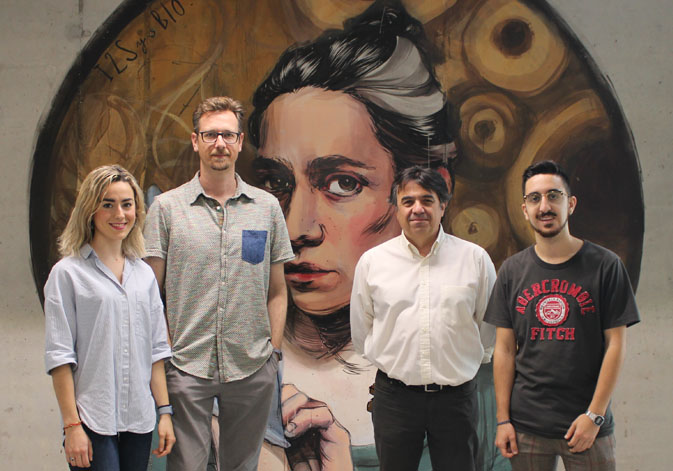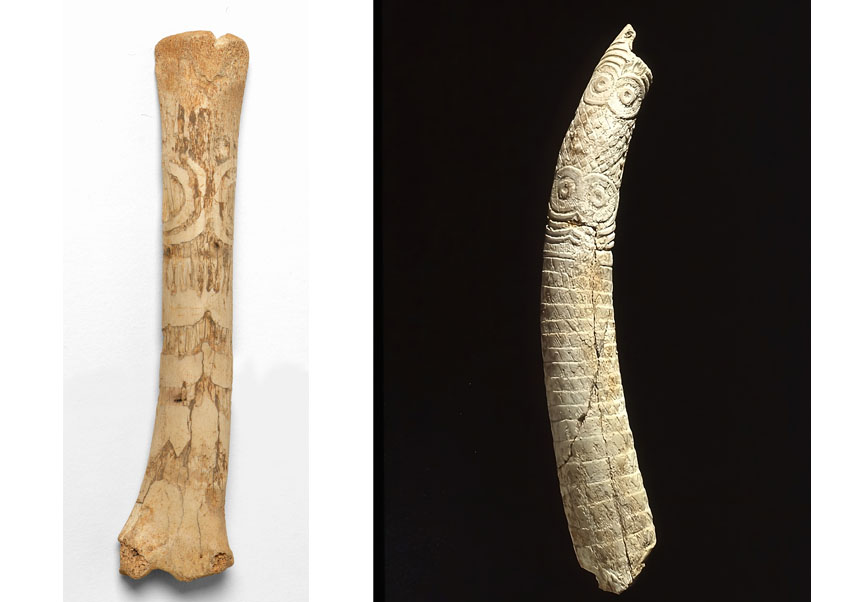Synthetic biology, worse valued than biotechnology and genetic engineering
- Scientific Culture and Innovation Unit
- June 26th, 2019

A research group of the Institute for Integrative Systems Biology (I2SysBio), a mixed centre of the University of Valencia and the CSIC, and of the Language Theory and Communication Sciences Department has carried out a macro-survey at the CosmoCaixa Museum in Barcelona to know what is the acceptance of society on biotechnology and other subdisciplines, and what is the perception of gender in science. The survey has revealed that the population is more favourable to the terms biotechnology or genetic engineering than to synthetic biology. The disciplines associated with female researchers have also obtained better ratings than those associated with men. The survey has had a sample of 38,113 people.
Manel Porcar and Esther Molina, of I2SysBio, Martí Domínguez, of the Language Theory and Communication Sciences Department of the UV, and Adriel Latorre, of Darwin Bioprospecting Excellence have carried out the survey to check what is the current opinion about genetic engineering, synthetic biology and biotechnology, three disciplines that, according to the study itself, tend to create controversy, concern and a certain reluctance among society. This has taken place in an exhibition focused on synthetic biology exhibited at the CosmoCaixa Museum in Barcelona.
Biotechnology, genetic engineering and synthetic biology are terms that are very interrelated and with very blurred borders between them. Biotechnology is the discipline of science that uses living organisms, cells or cellular components to make products for agriculture, medicine or industry. It is a very old practice that is now done in the laboratory but that the human being has carried out, even involuntarily, throughout history. On the other hand, genetic engineering is a subdiscipline of it and its practice consists in the manipulation of the genetic code of organisms. These two disciplines normally use organisms from nature. In contrast, synthetic biology consists in designing and manipulating artificial systems created in laboratories and that can also be seen as a new aspect of genetic engineering. According to the research group, these terms are systematically related to Genetically Modified Organisms (GMOs). And this, added to the critical perception of this type of organisms, has generated a negative response towards biotechnology.
The total sample was 38,113 people, a figure that guarantees solid results in this regard. The participants have been divided into 6 generational groups according to their date of birth. The first group consisted of people born between 1920 and 1945, the so-called Silent Generation. The second group, the baby boomers, born between 1946 and 1964. The third, Generation X, between 1965 and 1980. Generation Y, better known as millennials, are the fourth generational group in which they have divided the participants in the survey. The fifth, centennials, people born between 1997 and 2010. Finally, the Alpha Generation, people born after 2011.
The survey, conducted in Spanish, Catalan and English, asked participants about their age, gender and academic background. The answer consisted in valuing from 0 (unfavourable) to 10 (very favourable) an image with the question “How would you rate the following scientific field?”. The survey was randomly displaying an image of six different random combinations (that is, three female scientists, each with a discipline and three male scientists).
The results show that the terms biotechnology and genetic engineering have better acceptance than synthetic biology –an unexpected result, since the survey was framed within an exhibition focused on synthetic biology, which shows that the exhibition has not managed to change the perception of people–. In the words of Manuel Porcar, “it is surprising how the term synthetic biology is even worse valued than genetic engineering. The negative connotations of the term artificial are very strong, and it seems that the combination with the term biology makes it even worse. This leads us to an interesting dilemma: if we want to take advantage of the potential of this technology and make it acceptable by society, should we better explain what synthetic biology is or do we just have to change its name?”.
Regarding gender, the image of female scientists has been better valued than the image of male ones. One of the reasons given by the research group is that the majority of women who came to the exhibition, interested in scientific issues, have positively valued the women in the images, which means that the general perception about women has improved, but that has not had any effect on the image of men. They also suggest that, since the majority of visitors to the exhibition belong to the centennial generation, the best perception of the figure of women is that the promotion of the figure of the scientific woman in recent years has been effective.
Regarding the academic level, the results have shown that people with a higher educational level had more acceptance towards those three disciplines than people with a low level of education. Also, people with more training have shown less inequality in terms of the perception of men and women. And in terms of age, the results show that the youngest generation groups (centennials and Alpha Generation) and the older generations (Silent Generation and baby boomers) are the ones that give the worst evaluations, while those who belong to generation X are the ones that have shown a more positive attitude towards these disciplines.
Complex biological systems
The Institute for Integrative Systems Biology (I2SysBio), a mixed centre of the University of Valencia and the Higher Council for Scientific Research, is dedicated to the study of complex biological systems, especially microorganisms, with applications mainly in biomedicine and biotechnology. The centre works through an innovative public-private research model and is located in the Science Park of the University of Valencia, on the Burjassot-Paterna campus.
Article:
Manuel Porcar et al. «Words, Images and gender. Lessons from a survey on the public perception of synthetic biology and related Disciplines». EMBO Reports (2019) DOI 10.15252/embr.201948401 |
File in: Recerca, innovació i transferència , Institut de Biologia Integrativa de Sistemes (I2SYSBIO) , Facultat de Ciències Biològiques , Facultat de Filologia, Traducció i Comunicació , Investigació a la UV , Internacionalització recerca , Difusió i comunicació científica , Parc Científic , Cultura Científica , Grups de recerca , Publicacions
















